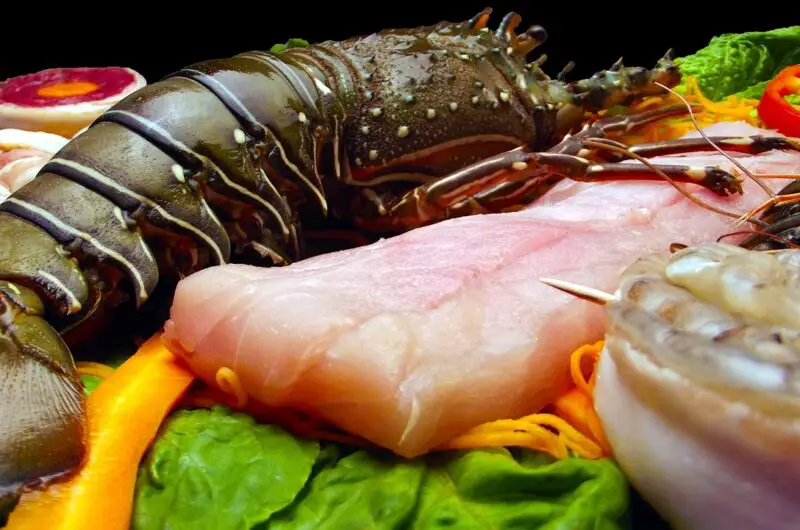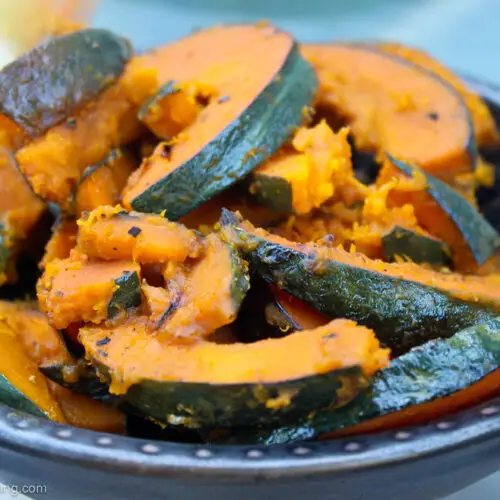The carnivore diet is a zero-carb, animal-based diet that focuses entirely on consuming animal products such as meat, fish, eggs, and dairy. This diet eliminates all plant-based foods, including fruits, vegetables, grains, nuts, and seeds. Proponents of the carnivore diet argue that it provides various health benefits, such as improved digestion, mental clarity, fat loss, and reduced inflammation.
If you’re considering the carnivore diet, it’s crucial to have a structured meal plan to ensure proper nutrition and meal variety. In this article, we’ll outline a comprehensive carnivore diet meal plan, covering essential foods, meal ideas, benefits, and tips for success.
Benefits of the Carnivore Diet
Before diving into the meal plan, let’s explore some of the potential benefits of the carnivore diet:
- Weight Loss – Since the diet eliminates carbohydrates, your body shifts to burning fat for energy, leading to weight loss.
- Reduced Inflammation – Many people report reduced joint pain, better gut health, and lower markers of inflammation.
- Mental Clarity & Focus – The diet is rich in proteins and fats, which help stabilize blood sugar levels and reduce brain fog.
- Simplicity – The carnivore diet is straightforward, with no need for calorie counting or portion control.
- Improved Digestion – Removing fiber and plant-based foods can alleviate bloating and digestive discomfort in some individuals.
Now, let’s get into the details of how to plan your meals on the carnivore diet.
Carnivore Diet Meal Plan: Essential Foods
When following a carnivore diet, you’ll need to focus on nutrient-dense animal foods. Here’s a list of allowed and not allowed foods:
Allowed Foods
✅ Meat: Beef, pork, lamb, chicken, turkey, duck, organ meats (liver, heart, kidney)
✅ Fish & Seafood:Salmon, sardines
✅ Eggs: Chicken eggs, duck eggs
✅ Dairy (Optional): Butter, heavy cream, cheese (if tolerated)
✅ Animal Fats: Tallow, lard, duck fat
✅ Bone Broth: A great source of minerals and collagen
Foods to Avoid
❌ All Plants: Fruits, vegetables, grains, legumes, nuts, and seeds
❌ Processed Foods: Anything with additives, artificial ingredients, or sugar
❌ **AreSugary Beverages: Sodas, fruit juices, alcohol
❌ Plant-Based Oils: Canola oil, vegetable oils, seed oils
7-Day Carnivore Diet Meal Plan
This 7-day carnivore diet meal plan will help you structure your meals while ensuring variety and proper nutrition.
Day 1: High-Protein Start
- Breakfast: 3 scrambled eggs cooked in butter with bacon
- Lunch: Ribeye steak with beef tallow
- Dinner: Grilled salmon with a side of bone marrow
Day 2: Nutrient-Dense Eating
- Breakfast: 3 eggs fried in lard with ground beef
- Lunch: Pork chops with butter and bone broth
- Dinner: Beef liver with ribeye steak
Day 3: Fat-Focused
- Breakfast: Cheese omelet with sausage
- Lunch: Roasted chicken thighs with duck fat
- Dinner: The
Day 4: Seafood Variety
- Breakfast: Scrambled eggs with smoked salmon
- Lunch: Grilled shrimp with tallow
- Dinner: Pan-seared mackerel with beef bone broth
Day 5: Organ Meats for Nutrients
- Breakfast: Beef liver with eggs
- Lunch: Slow-cooked short ribs with butter
- Dinner: Ribeye steak with a side of bone marrow
Day 6: Classic Steak Day
- Breakfast: Fried eggs with bacon
- Lunch: Ribeye steak with butter
- Dinner: Gro
Day 7: Mix & Match
- Breakfast: Scrambled eggs with sausage
- Lunch: Pork ribs with butter
- Dinner: Grilled salmon with bone broth
Tips for Success on the Carnivore Diet
To make the most of the carnivore diet, follow these key tips:
1. Eat Until Full
Unlike calorie-restricted diets, the carnivore diet encourages eating until satisfied. Protein and fats are naturally satiating, helping regulate appetite.
2. Prioritize Fatty Cuts of Meat
Choosing fatty cuts of meat like ribeye, pork belly, and lamb ensures adequate fat intake, which is crucial for energy.
3. Include Organ Meats
Organs like liver and heart are packed with vitamins and minerals that support overall health.
4. Stay Hydrated
Drinking enough water is crucial. Bone broth is an excellent addition to prevent dehydration and replenish electrolytes.
5. Adjust According to Your Body
Some people may thrive on strict carnivore, while others might include some dairy or occasional seafood. Listen to your body and make adjustments as needed.
6. Consider Supplements
If you feel low energy or have nutrient deficiencies, consider adding electrolytes, magnesium, or omega-3 supplements.
Common Mistakes to Avoid
When transitioning to the carnivore diet, avoid these common pitfalls:
❌ Eating Too Lean: Consuming only lean meats can lead to low energy and nutrient deficiencies. Always balance protein and fat intake.
❌ Not Eating Enough: Skipping meals or undereating can cause fatigue. The diet works best when you eat to satiety.
❌ **IgnoreIgnoring Electrolytes: Many beginners experience keto flu symptoms due to electrolyte imbalances. Adding salt, potassium, and magnesium can help.
❌ Expecting Immediate Results: Your body needs time to adapt to fat as a primary energy source. Be patient and give it a few weeks.
Frequently Asked Questions (FAQs)
1. Is the Carnivore Diet Safe?
For most people, the carnivore diet is safe and beneficial. However, those with pre-existing medical conditions should consult a doctor before starting.
2. Can I Eat Dairy?
Some carnivores include cheese, butter, and heavy cream if well-tolerated. If you experience bloating or inflammation, try eliminating dairy.
3. Will I Get Enough Nutrients?
Meat, organ meats, and seafood provide most essential vitamins and minerals. Bone broth and organ meats can further enhance nutrient intake.
4. How Long Should I Follow the Carnivore Diet?
Some people do it short-term (30-90 days) as an elimination diet, while others adopt it as a long-term lifestyle.
5. What About Exercise?
The carnivore diet supports muscle growth and energy. Strength training and resistance workouts pair well with this way of eating.
Final Thoughts
The carnivore diet is a simple yet effective way to lose weight, improve mental clarity, and reduce inflammation. While it may not be for everyone, those who try it often report improved digestion, increased energy, and better overall health.
By following this 7-day carnivore diet meal plan, you can ensure a balanced intake of essential nutrients while enjoying delicious, satisfying meals. Whether you’re starting as a short-term reset or considering long-term adoption, this diet offers a straightforward, no-carb approach to nutrition.
If you’re ready to dive into the carnivore diet, stock up on high-quality meats, embrace animal fats, and listen to your body’s needs. Happy eating! 🥩🔥
Here are some references and resources that provide insights into the carnivore diet, its benefits, and its impact on health:
Scientific Studies & Research
- Shan, Z., et al. (2020). “Association Between Low-Carbohydrate Diets and Mortality: A Systematic Review and Meta-Analysis of Observational Studies.”The American Journal of Clinical Nutrition.
- Link
- This study explores the long-term effects of low-carb diets, including ketogenic and carnivore variations.
- DiNicolantonio, J.J., O’Keefe, J.H., & Wilson, W.L. (2018). “The Effects of Low-Carbohydrate Diets on Cardiovascular Risk Factors.”Open Heart Journal.
- Link
- Discusses how low-carb, high-fat diets impact heart health, inflammation, and metabolic function.
- Mikov, M., Fawcett, J.P., & Kuhajda, K. (2021). “Meat-Based Diets and Gut Health: A Review of Carnivore Diet Effects on the Microbiome.”Nutrients Journal.
- Link
- Examines the effects of a meat-based diet on gut bacteria and digestion.
Books on the Carnivore Diet
- Baker, S. (2019). “The Carnivore Diet.” Victory Belt Publishing.
- IN
- Saladino, P. (2020). “The Carnivore Code: Unlocking the Secrets to Optimal Health by Returning to Our Ancestral Diet.” Houghton Mifflin Harcourt.
- Dr. Paul
Medical & Nutritional Websites
- Harvard T.H. Chan School of Public Health – Low-Carbohydrate Diets
- Link
- Discusses the potential benefits and risks of low-carb diets, including ketogenic and carnivore diets.
- Mayo Clinic – Is the Carnivore Diet Healthy?
- Link
- Offers a balanced review of animal-based eating and its effects on health.
- Diet Doctor – Carnivore Diet: Benefits, Risks, and Meal Plans
- Link
- A reputable source for low-carb, keto, and carnivore diet information.
Expert Opinions & Online Communities
- Shawn Baker, M.D. – MeatRx Community & Research
- Website
- A platform for carnivore diet testimonials, scientific research, and coaching.
- Reddit – r/carnivore & r/zerocarb
- r/carnivore
- r/zerocarb
- Communities where people share their experiences and discuss scientific findings related to the diet.
These sources provide a mix of scientific evidence, expert opinions, and real-life testimonials to help understand the effects and benefits of the carnivore diet. If you’re considering this diet, reviewing these materials can provide deeper insights and help you make an informed decision. 🚀🥩


















